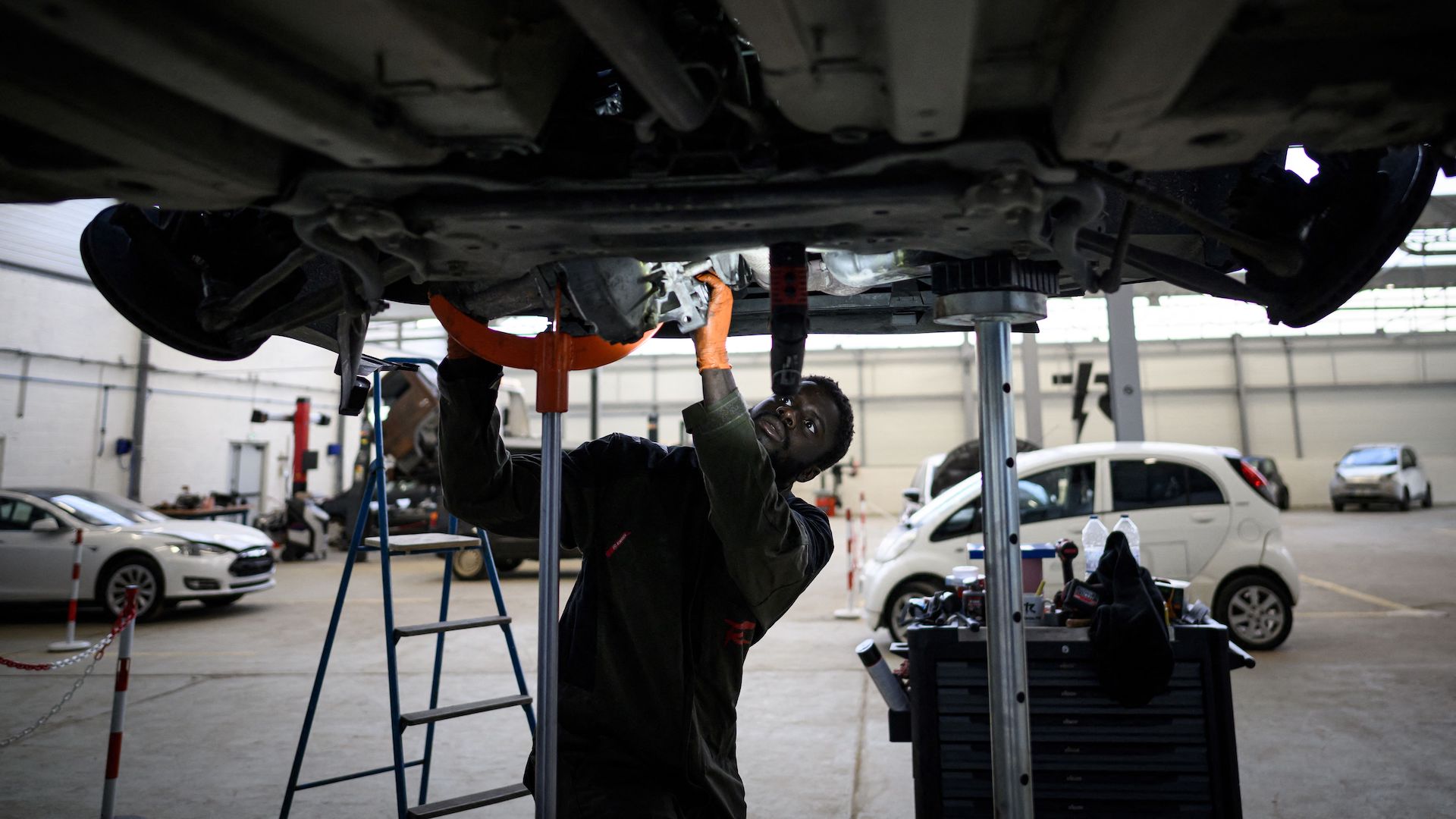

One of the early arguments for electric vehicles was that they wouldn’t need as much maintenance. In practice however, EVs have been subject to quality issues and recalls too, while their repairs have sometimes been stalled by a lack of parts. Some time soon, EV owners may also find themselves struggling just to find a qualified mechanic—but the evidence leaves it unclear when the problem could arise, or how bad it might be.
As of 2019, there were over 655,000 Americans employed in automotive service according to U.S. Bureau of Labor Statistics data cited by Automoblog. Only about 229,000 of them are reported to be certified by the National Institute for Automotive Service Excellence, or ASE, and of those, only around 3,100 are certified to service EVs. That’s just 1.4 percent.
So far, that hasn’t actually presented a problem, as EVs reportedly make up only about one percent of vehicles on U.S. roads. There are reportedly 1,270 conventional ICE vehicles on the road per mechanic, as opposed to just 807 for an EV-certified mechanic.

But an increasing number of older hybrids (which require EV-adjacent training) are starting to need service, while the first mainstream EV, the Tesla Model S, is now more than a decade old. Modern EVs are also starting to age out of their warranties, meaning their rapid uptake will propel a wave of EV owners seeking service outside of dealer networks. And your average mechanic might not be able to handle them.
From the two-year ASE program I took in college, I learned that there are special training programs and tools needed for working on cars with high-voltage drivetrains. At the time, that mainly concerned hybrids, but now that EVs have exceeded hybrids’ U.S. market share, they’ll eventually be a bigger piece of the puzzle.

The thing is, working on electrified powertrains can require insulated tools and other specialty equipment, plus safety gear. Mechanics tend to buy their own tools, and that money comes straight from their pockets. What’s more, while people half a century ago could learn to fix cars by just tinkering on them, there’s no such opportunity with EVs. A know-nothing might bust their knuckles working on a 1973 Chevy, but on a 2013 Tesla, they might fatally electrocute themselves.
There are more considerations too, as outlined by a mechanic who spoke to Automoblog. EVs’ tendency to pack their batteries in their floors means they can have unique, specific lift points to avoid damaging the expensive, sometimes explosive battery. Basic components such as wheel hubs may also be assembled differently, while even EV tires may require special training to install.
Of course, there’s also some question as to whether EVs will need as much attention as the cars they’re supposed to replace. They’re less complex, and don’t need maintenance as often, with regenerative braking reducing pad and rotor wear, while there are fewer fluids to replace. That could lessen demand for technicians, as could the recent, unexpected plateau of EV sales. (However, when the repair bills do arrive, they can be painfully pricey as outlined by Business Insider.)

That leaves uncertain how soon a shortage could arise. The ASE is reportedly doing its best to add new certification pipelines to fill the gap before it appears, but there’s a broader problem in the service industry. Market Watch reports that many older mechanics are retiring, while low income and high cost of entry are repelling younger members of the workforce. This is causing a growing shortage that’s exacerbated by the fact that Americans’ cars are older than ever.
It’s just too soon to say whether the mechanic shortage will translate as directly into an EV technician shortage, and if it does, how soon. Automakers themselves are funding training programs that will first feed their own warranty service networks, and indirectly, the larger industry. But it all starts with a young person interested in picking up a wrench, and somebody’s gotta pay for that wrench.
Got a tip or question for the author? You can reach them here: james@thedrive.com